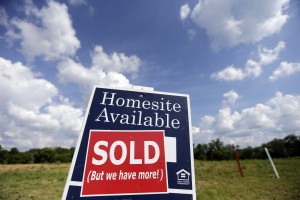
Purchasing a home early can have many great payoffs. Long-term financial savings, tax breaks and a lower monthly housing payment are some of the benefits that go to today’s home-buyer.
The market in Utah has experienced a trend toward lifestyle renting over the past several years. This is when a person who could be approved to buy a home opts to rent. Though costlier in the long run, this choice is likely due to apprehension about buying that stems from the Great Recession of 2008.
According to Trulia, the national online residential real estate website, renting is actually 38 percent more expensive than purchasing a home, and today’s rates are at historic lows. According to Freddie Mac historical statistics, the average 30-year mortgage interest rates are the lowest they have been for the past two decades at 3.7 percent this year. This can result in a savings of thousands of dollars over the life of a home loan.
Not all potential buyers are apprehensive about the idea, though, according to the National Association of Realtors, 28 percent of homes purchased in 2014 were by Generation Y buyers ages 18–30.
Matt Stephens, a sophomore studying chemistry, discovered this and decided to buy a home for the savings it could afford to him and his wife as they finished their schooling in Utah county.
“My wife and I had been having a hard time finding the right rental unit — it seemed that everything was a bit run-down, or, if it wasn’t, it was outside of our budget. Then we realized that we could purchase a new condo with a monthly payment that was less than what we were paying in rent,” he said. “Our goal is either sell it after we finished with school, or hang on to the property and rent it out when we leave Provo.”
Ray Murrow, a mortgage loan officer with the Bank of America, suggested that potential buyers begin the process by considering their present eligibility and future plans.
“First, you have to ask yourself a number of questions. Do you plan to be in the area for several years? Do you have enough money for a reasonable down payment? Do you have good credit?” he asked. “If you can answer yes to these questions, the next step is to get financed.”
Buyers have to be approved by the lender’s underwriters, the unseen people who ultimately approve a home loan.
“They will look at your employment history for the past two years to deem whether or not you are capable of supporting yourself and your new home,” Murrow said. “They will also look at your income history and your credit score,” he said.
Sara Larson, who works for Quicken Loans, a national lending company, recommends getting pre-approved to buy a home before house hunting.
“When you get pre-approved, you understand the amount the lender is willing to loan you, so you know your price range. Being pre-approved also helps you close on a home much faster than you would be able to otherwise, because we already have your information and approval on file,” she said.
One of the most important things to consider when buying a home is how much buyers can pay as a down payment. Trisha Wollebaek, a mortgage lending officer with Zions Bank, explained how a down payment works.
“It is a myth that you have to put down 20 or 30 percent to purchase. If you have good credentials everywhere else, we have been known to approve for someone that can only afford to put down 5 or 10 percent,” she said. “Twenty percent is a good goal, because it reduces the total interest you would pay significantly.”
Once financing is in place, buyers can start looking at homes. Mindy Smith, a local realtor, discussed her career in helping connect buyers with the right home.
“Before we physically go from location to location I try to get a feel for what the buyer is interested in. Do they have a certain number of bedrooms they need? Do they have preferences as to the type of home or neighborhood? What is their price range?” she said. “Once I have this information I can narrow down the properties to show the buyer that will fit their criteria.”
Buyers who close on a home not only reap the benefits of a lower monthly payment but own property and become eligible for first-time homebuyer tax credit. This can result in a tax-break of up to $8,000.




